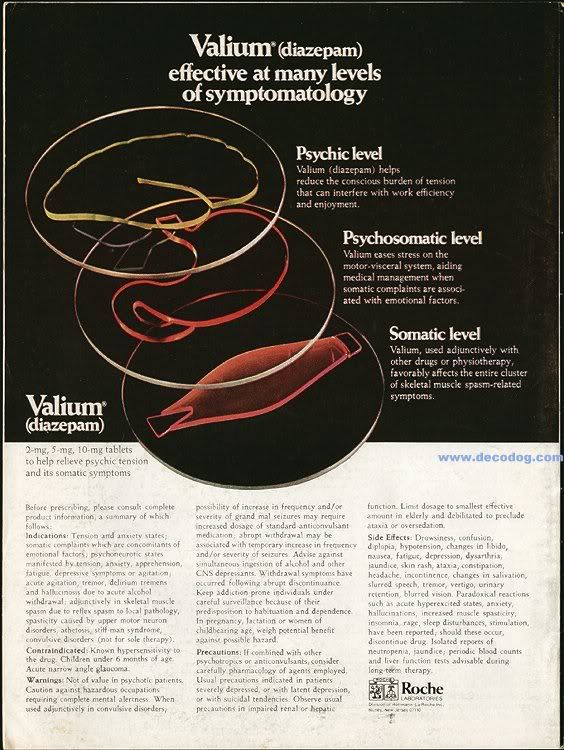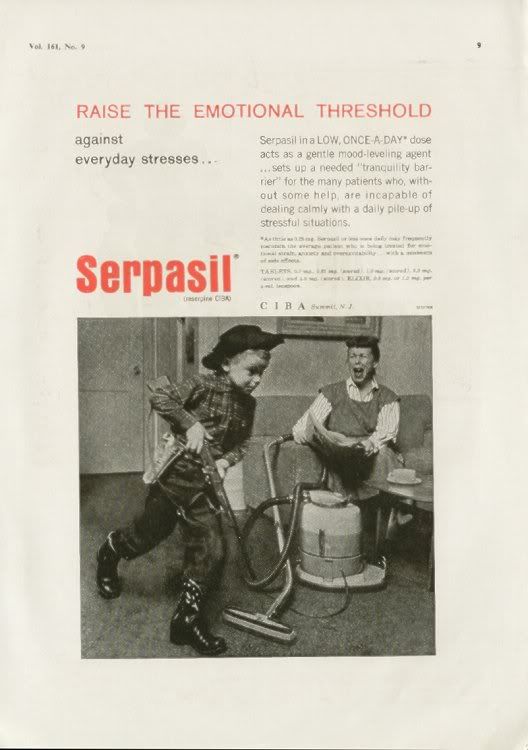 The British press are having a bit of fun with this one, which hasn't gone unnoticed Down Under. (But I think the really fun part was missed by all of them, and you can find this little Easter egg of delight at the bottom of this post, and as a teaser, this is some of it: "Mostly all of the young people wear eyeglasses in Taiwan.")
The British press are having a bit of fun with this one, which hasn't gone unnoticed Down Under. (But I think the really fun part was missed by all of them, and you can find this little Easter egg of delight at the bottom of this post, and as a teaser, this is some of it: "Mostly all of the young people wear eyeglasses in Taiwan.")
Philip Sherwell writes for news.Telegraph:Loud and brash, in gawdy garb and baseball caps, more than three million of them flock to our shores every year. Shuffling between tourist sites or preparing to negotiate a business deal, they bemoan the failings of the world outside the United States.
The reputation of the "Ugly American" abroad is not, however, just some cruel stereotype, but - according to the American government itself - worryingly accurate. Now, the State Department in Washington has joined forces with American industry to plan an image make-over by issuing guides for Americans travelling overseas on how to behave.
Under a programme starting next month, several leading US companies will give employees heading abroad a "World Citizens Guide" featuring 16 etiquette tips on how they can help improve America's battered international image.
Business for Diplomatic Action (BDA), a non-profit group funded by big American companies, has also met Karen Hughes, the head of public diplomacy at the State Department, to discuss issuing the guide with every new US passport. The goal is to create an army of civilian ambassadors.
The guide offers a series of "simple suggestions" under the slogan, "Help your country while you travel for your company". The advice targets a series of common American traits and includes:
• Think as big as you like but talk and act smaller. (In many countries, any form of boasting is considered very rude. Talking about wealth, power or status - corporate or personal - can create resentment.)
• Listen at least as much as you talk. (By all means, talk about America and your life in our country. But also ask people you're visiting about themselves and their way of life.)
• Save the lectures for your kids. (Whatever your subject of discussion, let it be a discussion not a lecture. Justified or not, the US is seen as imposing its will on the world.)
• Think a little locally. (Try to find a few topics that are important in the local popular culture. Remember, most people in the world have little or no interest in the World Series or the Super Bowl. What we call "soccer" is football everywhere else. And it's the most popular sport on the planet.)

• Slow down. (We talk fast, eat fast, move fast, live fast. Many cultures do not.)
• Speak lower and slower. (A loud voice is often perceived as bragging. A fast talker can be seen as aggressive and threatening.)
• Your religion is your religion and not necessarily theirs. (Religion is usually considered deeply personal, not a subject for public discussions.)
• If you talk politics, talk - don't argue. (Steer clear of arguments about American politics, even if someone is attacking US politicians or policies. Agree to disagree.)
Keith Reinhard, one of New York's top advertising executives, who heads BDA, said: "Surveys consistently show that Americans are viewed as arrogant, insensitive, over-materialistic and ignorant about local values. That, in short, is the image of the Ugly American abroad and we want to change it."
The guide also offers tips on the dangers of dressing too casually, the pluses of learning a few words of the local language, use of hand gestures and even map-reading.
Of course, US foreign policy - and perceptions of it - currently has the biggest impact on the image of Americans abroad. President George W Bush recognised this when he appointed Ms Hughes, a close confidante, to head the country's public diplomacy push. But Mr Reinhard and his colleagues are convinced that individual Americans can also make a difference.
They also want to highlight the positives in foreigners' impression of the US as a land of opportunity, freedom, diversity and "can-do spirit" by boosting business and domestic travel to America.
"In many parts of the world, America is not getting the benefit of the doubt right now. People prefer to dump on us instead. But for many people, corporate America is their main point of contact, and that's where we come in."
Business for Diplomatic Action, which was formed in 2004, has already distributed 200,000 -passport-sized guides tailored to college students going abroad.
The group's next target is to raise funding for a colourful pictorial World Citizen's Guide For Kids for children on school or youth group trips. However, a spokesman for the National Tourism Agency for Britain said last night: "Americans have a certain reputation which, for the majority, is undeserved. These guidelines sound like good common sense but they're not something the majority of our American visitors need. As tourists, they're out to enjoy themselves and have a good time. We continue to welcome them."
We hosted an old friend and her new-to-us husband and kids for a dinner at our house on their visit to Sydney a few years back. He was a big exec, serially employed by many of the top S&P 500 type corporations. He was talking about his company trying to open up Asia. I tried to tell him about the Pacific way, the delicacy of "face", the importance of nurturing relationships, etc.
He wouldn't have a bar of it, nosiree bob. "We'd tell 'em what we want, what we expect and what we'd give 'em." Wham, bam, thanky Mam. He saw no value in taking the time it can take to establish a business, or even to "do" business, in this part of the world. I think he had that serial job mentality and quarterly report driven vision of the world. Never saw him again out this way. He was a hard driven man and I'm sure Asia would have driven him mad. If he'd have survived to tell the story.By the way, that little Guide is punching way above its weight. I'm sure there must be some Bush Texas connection and that it was not an inside State Department thing.Just look at this website: Five of us, students in the Temerlin Advertising Institute at SMU [Southern Methodist University] in Dallas, worked with our professor. We reviewed everything BDA collected, and then asked students their opinions about studying abroad, before and after their trips. Then we spent weeks researching everything published in hard copy and online about traveling abroad. We took all that and made a guide we hope you find useful. happy travels to you all
The strength of their scholarship is also telling. Only by saving that website as text and reading it in Notepad did I discover the following invaluable information that these kids had amassed:
Algeria (Official: Arabic. Other: French, Berber dialects)- In Algeria the traditional symbol of manhood is a moustache.
Argentina (Official: Spanish. Other: English, Italian, German, French) - People who live in Argentina eat more beef per capita than any other people.
Australia (English, native languages) - The film industry in Australia is one of the largest in the world.
Austria (Official: German, Slovene(official in Carinthia), Croatian (official in Burgenland), and Hungarian (official in Burgenland)) - Dating in Austria, one might expect to "go dutch." Unless it's a special occasion, men and women split the costs of their dates evenly.
Bahrain (Arabic, English, Farsi, Urdu)- Citizens of Bahrain are among the most well educated people in the Gulf region.
Bangladesh (Official: Bangla, also known as Bengali. Other: English)- Some of the people here use their chins to point at things.
Belgium (Official: Dutch, French, and German) - In Belgium, talking with your hands in your pockets is considered rude.
Belize (Official: English. Other: Spanish, Mayan, Garifuna (Carib) and Creole)- The world's largest barrier reef is located in Belize.
Benin (Official:French. Other: Fon and Yoruba in the south and at least six major tribal
languages in the north.) - Many people in Benin love hot and spicy foods.
Bolivia (Official: Spanish, Quechua, and Aymara) - Some rural women wear bowler derby hats. Bosnia/Herzegovina (Bosnian, Croatian, and Serbian ) - Women here dye their hair; they rarely let their gray hair be seen.
Botswana (Official: English, Setswana ) - It is very rude to raise your voice in anger when you are in public.
Brazil (Official: Portuguese. Other: Spanish, English, French) - Few children ever leave
home before they marry.
Bulgaria (Bulgarian, and secondary languages correspond with your background) - To say "yes" shake your head side to side; for "no" nod your head up and down.
Burkina Faso (Official: French. Other: 90% of the population speaks native African languages
belonging to the Sudanic family) - Even though French is the official language of Burkina Faso, only 15-20% of the people speak it.
Cambodia (Official: Khmer. Other: French and English) - To greet someone in Cambodia place your hands together in prayer position at chest level.
Cameroon (Official: English and French. Other: 24 major African language groups.) - Cameroon has 240 local languages in addition to French and English.
Canada (Official: English and French.)- Canada has one of the highest immigration rates in the world, resulting in much cultural diversity.
Chile (Spanish) - Two Chileans have received Nobel Prizes in literature.
China (Standard Chinese or Mandarin (Putonghua, based on the Beijing dialect), Yue (Cantonese), Wu (Shanghaiese), Minbei (Fuzhou), Minnan (Hokkien-Taiwanese), Xiang, Gan, Hakka dialects and minority languages) - Even though China is barely larger than the U.S. in land size, the population is four times larger.
Colombia (Spanish) - 90% of the world's emeralds come from Colombia. [Betcha that fooled ya]
Costa Rica (Official: Spanish. Other: English) - A normal breakfast consists of black beans and rice.
Croatia (96% speak Croatian, 4% speak other languages including Italian, Hungarian, Czech, Slovak, and German) - All levels of education are free to the citizens of Croatia.
Cuba (Spanish) - Feel free to interrupt a friend or acquaintance in the middle of a conversation because it is not considered rude.
Cyprus (Greek, Turkish and English)
Czech Republic (Czech) - Czechs remove their shoes before they enter someone's home.
Denmark (Danish, Faroese, Greenlandic (an Inuit dialect) and German) - Denmark has always been a monarchy.
Dominican Republic (Spanish) -Dominoes is a national past time in the Dominican Republic. Ecuador (Official: Spanish. Other: Quechua and other Amerindian languages) - It is not unusual to arrive anywhere from 10 minutes to an hour late to an event.
Egypt (Official: Arabic. Other: The educated know English and French.) - A man will only shake a woman's hand if she sticks her hand out first.
El Salvador (Spanish, Nahua (among some Amerindians)) - People in El Salvador think it is rude to point with the index finger.
England (English, Welsh (about 26% of the population of Wales), Scottish form of Gaelic (about 60,000 in Scotland)) - People in England watch more television than any other nation except people in the United States.
Ethiopia (Amharic, Tigrinya, Oromigna, Guaragigna, Somali, Arabic, other local languages and English is the foreign language taught in schools.) - People eat a porridge meal made of corn, barley, oats, or sorghum everyday.
Finland (Official: Finnish, Swedish Other: Sami- and Russian- speaking minorities) - A common activity is going to the sauna.
France - (Everyone speaks French, and the regional dialects (Provencal, Breton, Alsatian, Corsican, Catalan, Basque, Flemish) are rapidly declining.) - In France the number of pets outnumber that of children.
Gambia (Official: English. Other: Mandinka, Wolof, Fula and other indigenous languages) - You can not eat and drink at the same time, so drinks are not served until after the meal.
Germany (German) - Instead of crossing your fingers for luck, Germans squeeze their thumbs. Ghana (Official: English. Other: African languages (i.e. Akan, Moshi-Dagomba, Ewe, and Ga)) - When a guest leaves they are accompanied to the bus stop, taxi stand, or given a ride home. Greece (Official: Greek. Other: English, French) - In Europe, the correct form for waving hello and goodbye is palm out, hand and arm stationary, fingers wagging up and down. The common American wave means no - except in Greece, where it is an insult.
Guatemala (Spanish and Amerindian languages) - When you hail a taxi, the bigger the hand motion the longer distance you have to go.
Guyana (English, Amerindian dialects, Creole, Hindi and Urdu) - In Guyana, younger people address most adults or elders outside of their families as auntie or uncle.
Honduras (Spanish and Amerindian dialects) - At the age of 15, young women are brought into society with huge parties.
Hong Kong (Official: Chinese (Cantonese) and English.) Many Hong Kong Chinese use a Western name for business purposes.
Hungary (Hungarian) - Almost 80 percent of the women in Hungary work outside the home. Iceland (Icelandic, English, Nordic languages and German) - The people of Iceland have one of the highest life expectancy rate in the world.
India (Official: Hindi (primary), Bengali, Telugu, Marathi, Tamil, Urdu, Gujarati, Malayalam, Kannada, Oriya, Punjabi, Assamese, Kashmiri, Sindhi, and Sanskrit. Other: English, Hindustani) - There are at least 300 languages spoken in India.
Indonesia (Official: Bahasa Indonesia. Other: English, Dutch and local dialects.) - If you touch the top of someone's head in Indonesia, they will most likely be very insulted.
Ireland (English (primary) and Irish (Gaelic)) - Until 1995, the constitution in Ireland made divorce illegal.
Israel (Official: Hebrew. Other: Arabic is used officially for the Arab minority and English is the most commonly used foreign language) - Israel does not have a written constitution.
Italy (Officail: Italian. Other: German, French and Slovene.) - Placing a finger under your eye and pulling down on the skin slightly means that you think someone is smart.
Jamaica (English, patois English) - When you are in Jamaica and you respect or approve of an idea hit fists with a person.
Japan (Japanese) - In Japan, it is considered rude to look at a person directly in the eye for more than a few seconds.
Jordan (Official: Arabic. Other: English, among upper and middle class) - Women's jewelry is a symbol of wealth and financial security.
Kenya (Official: English and Kiswahili. Other: various indigenous languages) - Kenyans are more likely to trust you if you look them in the eye.
Kuwait (Official: Arabic. Other: English.)
Laos (Official: Lao. Other: French, English, and various ethnic languages) - Two-thirds of the population is Buddhist.
Lebanon (Official: Arabic. Other: French, English and Armenian) - In Lebanon people do not ask about someone's religion because that would mean you're categorizing someone.
Lithuania (Official: Lithuanian. Other: Polish, Russian) - Basketball is the most popular sport in Lithuania.
Luxembourg (Luxembourgish (national language), German (administrative language), French (administrative language)) - All citizens over the age of 18 are required to vote. And they enjoy one of the highest standards of living in the world.
Madagascar (Official: French and Malagasy) - Madagascar is an island the size of Texas, inhabited by a wide variety of plants and animals that only exist there.
Malaysia (Official: Bahasa Melayu. Other: English, various Chinese dialects, Tamil, Telugu,
Malayalam, Panjabi, Thai and several indigenous languages in East Malaysia) - Let's go fly a kite! Kite flying is a favored past time activity for many people in Malaysia.
Mali (Official: French. Other: Bambara and African languages) - People in Mali are obligated to take care of extended family members, people end up taking care of an average of 10 people. Malta (Official: Maltese and English) - Limestone is Malta's only natural resource.
Mauritius (Official: English and French. Other: Creole, Hindi, Urdu, Hakka and Bhojpuri) - Mauritius has rare species of birds that exist nowhere else in the world.
Mexico (Spanish,
Mayan, Nahuatl, and other regional languages) - Mexicans have two last names: one from the father and one from the mother.
Micronesia (Official: English. Other: Trukese, Pohnpeian, Yapese, Kosrean, Ulithian, Woleaian, Nukuoro, and Kapingamarangi) - It is common for people to offer food to visitors or people passing by and it is an insult to refuse unless you are full.
Mongolia (Khalkha Mongol, Turkic, Russian) - Mongolia's nickname is "Land of the Blue Sky," because of the great weather, in an average year there are 257 cloudless days.
Morocco (Official: Arabic. Other: Berber dialects and French which is often used in business, government, and diplomacy) - In some homes, it may be considered impolite to finish eating before your host.
Mozambique (Official: Portuguese. Other: indigenous dialects) - While in Mozambique be prepared to travel by foot or public transportation, because only the rich own cars.
Namibia (Official: English. Other: Afrikaans is used by most of the population, German, Oshivambo, Herero and Nama) - In general the rural homes in Namibia do not have telephones.
Nepal (Official: Nepali. Other: about a dozen other languages and about 30 major dialects, and English.) - The Nepalese think that wanting personal space, or to spend time by yourself is strange.
Netherlands (Official: Dutch and Frisian) - The Netherlands has more than 600 art museums. New Zealand (Official: English and Maori) - New Zealander's usually do not tip because the employer is responsible for their wages.
Nicaragua (Official: Spanish. Other: English and indigenous languages) - When you visit a home in Nicaragua, say hello to everyone and wait to be invited to sit down.
Niger (Official: French. Other: Hausa and Djerma) - If you want to get someone's attention in Niger you should snap or hiss.
Nigeria (Official: English. Other: Hausa, Yoruba, Igbo (Ibo), and Fulani) - Greet someone in Nigeria, before beginning a conversation.
Northern Ireland (English, Welsh (about 26% of the population of Wales), Scottish form of Gaelic (about 60,000 in Scotland)) - In Northern Ireland, it is unacceptable to date more than one person at a time.
Norway (Official: Bokmal Norwegian and Nynorsk Norwegian. Other: Sami- and Finnish)- In Norway, 40% of the Parliament and almost half of the cabinet positions are filled by women. Pakistan (Official: Urdu. Other: Punjabi, Sindhi, Siraiki (a Punjabi variant), Pashtu, Balochi, Hindko, Brahui, English and Burushaski.) - It may be inappropriate for a man to hold a woman's hand in public, but men are often seen walking down streets holding hands.
Panama (Official: Spanish. Other: English) - Panamanians are what we would call "close talkers;" they sit or stand close together while they talk to each other.
Paraguay (Official: Spanish and Guarani) - Soccer is the most popular sport in Paraguay.
Peru (Official: Spanish and Quechua. Other: Aymara, and many minor Amazonian languages) - Around half of the people in Peru live in poverty.
Philippines (Official: Filipino and English. Other: eight major dialects - Tagalog, Cebuano, Ilocan, Hiligaynon or Ilonggo, Bicol, Waray, Pampango, and Pangasinense) - The Philippines became independent from the United States on July 4, 1946.
Poland (Polish) - If someone in Poland blinks both eyes at you, they may be expressing romantic interest.
Portugal (Official: Portuguese and Mirandese) - If you are in Portugal and you would like to say that something is very good pinch and shake your earlobe.
Puerto Rico (Spanish, English) - Women do not change their last names after they get married in Puerto Rico.
Qatar (Official: Arabic. Other: English) - Most adults in Qatar wear perfume.
Romania (Official: Romanian. Other: Hungarian, German) - In Romania, you should only call very close friends or family members by their first names.
Russia (Russian) - New Year's day is generally Russians favorite holiday.
Saudi Arabia (Arabic) - Rarely do women interact with men outside of their families.
Scotland (English, Welsh (about 26% of the population of Wales), Scottish form of Gaelic (about 60,000 in Scotland)) - Scotland is the birthplace of golf, it was invented in the
1500's.
Senegal (Official: French. Other: Wolof, Pulaar, Jola and Mandinka) - It is very important to people in Senegal that you are well dressed in public.
Serbia-Montenegro (Serbian and Albanian) - The Serbian Orthodox Church teaches people that each family is guarded by a patron saint.
Singapore (Official: Chinese, Malay, Tamil, and English) - In Singapore, conforming to social norms is expected and often is legally enforced. On a lighter note, water sports are very popular.
Slovakia (Official: Slovak. Other: Hungarian) - We cross our fingers to wish for luck; in Slovakia they hold their thumbs.
Slovenia (Slovenian and Serbo-Croatian) - When entering a home in Slovenia you should at least offer to remove your shoes.
South Africa (Official: Afrikaans, English, Ndebele, Pedi, Sotho, Swazi, Tsonga, Tswana, Venda, Xhosa, Zulu) - South Africa is the wealthiest country in Africa, however, there is a large income difference between the races.
South Korea (Korean, English)- According to our friends in South Korea, if you are visiting or working in Asia then use chopsticks or learn fast. When you do, you will be highly regarded. Spain (Official: Castilian Spanish. Others (all official regionally): Catalan, Galician, and Basque) - Spaniards are what we would call "close talkers," standing close to each other when talking and frequently touch each others arms.
Sri Lanka (Official/National: Sinhala. National: Tamil. Other: English) - Every full moon constitutes a holiday in Sri Lanka.
Sweden (Swedish and small Sami- and Finnish-speaking minorities) - Sweden's foreign policy is
built upon neutrality and nonalignment.
Switzerland (Official: German, French, Italian and Romansch) - Every man who is "physically fit" serves in the army.
Syria (Official: Arabic. Other: Kurdish, Armenian, Aramaic, Circassian, French, and English) - While in Syria pass things with your right hand or both hands, but never pass anything with just your left hand.
Taiwan (Official: Mandarin Chinese. Other: Taiwanese (Min), Hakka dialects) - Mostly all of the young people wear eyeglasses in Taiwan.
Tanzania (Official: Kiswahili or Swahili, English. Other: Kiunguju (name for Swahili in Zanzibar), Arabic, and many local languages which is usually people's first language.) - In Tanzania, mothers are referred to by mama followed by their oldest son's name.
Thailand (Thai, English, ethnic and regional dialects)- In Thailand, it is actually illegal to leave the country with an image of Buddha.
Tibet (Tibetan)- When you want to greet someone in Tibet, simply stick out your tongue. Tunisia - (Official: Arabic. Other: French) Time is relative in Tunisia, "tomorrow" could mean next week.
Turkey (Official: Turkish. Other: Kurdish, Arabic, Armenian, and Greek) - If you are saying hello to a small group in Turkey, address each person individually.
Uganda (Official: English. Other: Ganda or Luganda, other Niger-Congo languages, Nilo-Saharan languages, Swahili, and Arabic) - Taking something from someone with both hands shows appreciation.
Ukraine (Ukrainian, Russian, Romanian, Polish, and Hungarian) - Ukraine is known for it's artistic Easter egg painting.
United Arab Emirates (Official: Arabic. Other: Persian, English, Hindi, Urdu) - Expatriates make up nearly 70% of the United Arab Emirates population.
United States (English and Spanish. There is no official language in the United States.) - In 2003, 7,300,667 passports were issued in the U.S. In the 2000 presidential election, 60% of U.S, citizens who were of voting age actually cast a vote.
Uruguay (Spanish, Portunol, or Brazilero (Portuguese-Spanish mix)) - Beginning at the age of 18, all citizens of Uruguay must return to their place of birth to vote.
Venezuela (Official: Spanish. Other: various indigenous dialects)- When shopping in Venezuela try asking how much something costs by rubbing together your thumb and index finger while rotating your palm upward.
Vietnam (Official: Vietnamese. Other: English, French, Chinese, Khmer, Mon-Khmer and Malayo- Polynesian) - The Vietnamese find it very rude to touch people on the top of their head.
Wales (English, Welsh (about 26% of the population of Wales), Scottish form of Gaelic (about 60,000 in Scotland)) - The sport of choice in Wales is rugby.
Yemen (Arabic) - People do not date in Yemen and marriages are usually arranged.
Zambia (Official: English. Other: Bemba, Kaonda, Lozi, Lunda, Luvale, Nyanja, Tonga, and about 70 other indigenous languages) - People in Zambia consider it an honor to have guests in their home.
Zimbabwe (Official: English. Other: Shona, Sindebele, and several tribal languages) - Respect is shown by lowering yourself. That is way when a superior enters the room no one stands up.
















